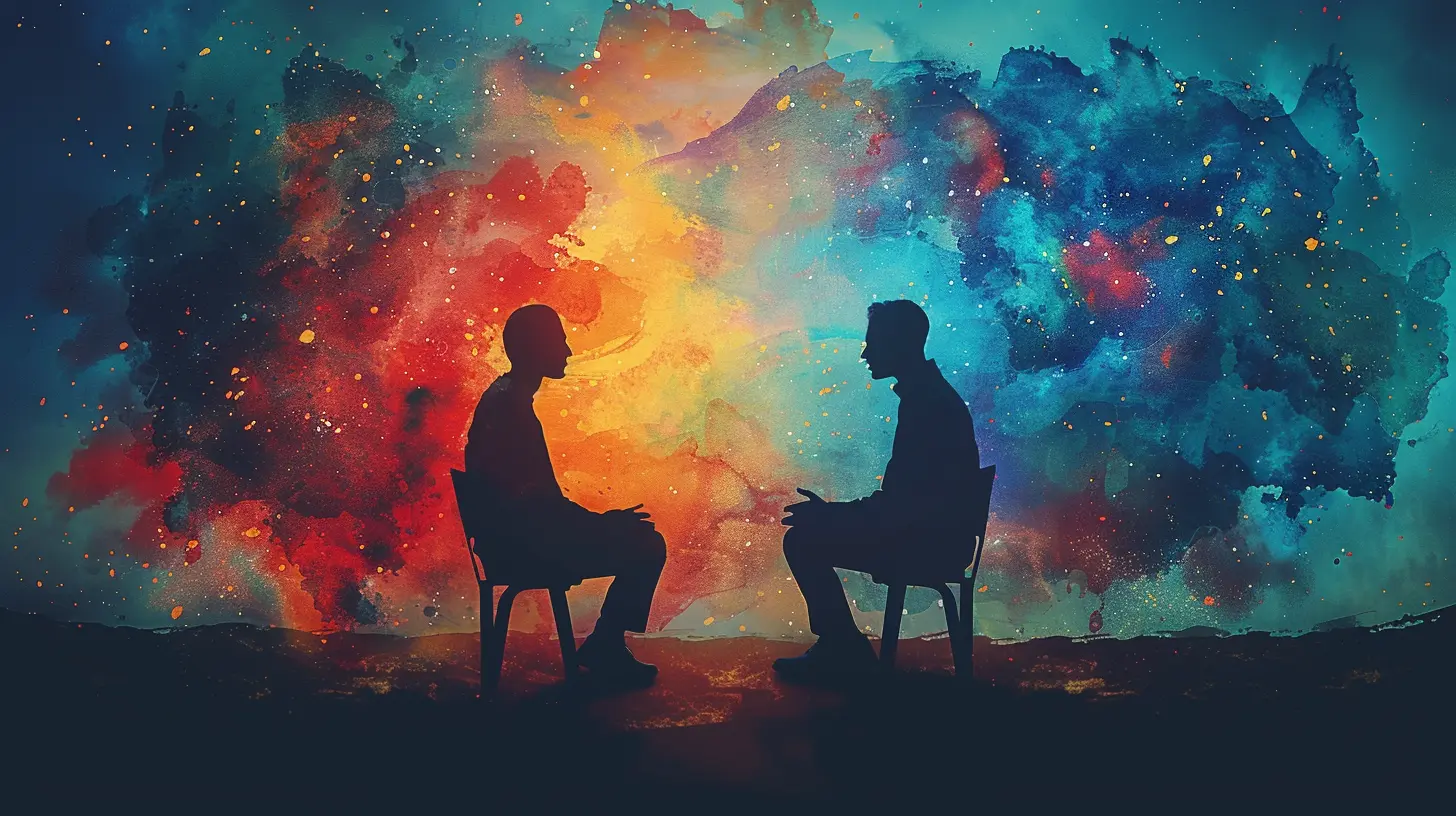Exploring Relational Therapy for Enhanced Communication and Connection
22 June 2025
Let’s be real—relationships can be tricky. Whether it's with a partner, a family member, a friend, or even a coworker, communication breakdowns happen. Misunderstandings pile up, emotions run wild, and sometimes, even when we’re trying our best, we just can’t seem to connect.
That’s where relational therapy steps in.
If you've ever wished there was a way to really get through to someone or rebuild trust after a rough patch, you're not alone. And the good news? Relational therapy might be the game changer you're looking for.
In this article, we’re diving deep into the world of relational therapy. We’ll cover what it is, how it works, and why it’s gaining popularity as a powerful approach to boosting communication and nurturing deeper connections in every aspect of your life.
What Is Relational Therapy, Anyway?
At its core, relational therapy is all about… well, relationships. But not just the romantic kind. We're talking all relationships—friends, family, coworkers, and yes, your significant other too.Relational therapy (also called relational-cultural therapy) focuses on the idea that our psychological well-being is largely shaped by our interpersonal connections. It's built on a pretty beautiful belief: healing happens in relationships.
Unlike traditional therapy that can be more focused on the individual and their internal mind, relational therapy says, “Hey, let’s look at the space between you and others. What’s going on there?”
It’s like zooming out to see the whole picture, not just the pieces.
Why Relationships Matter More Than You Think
Here’s a truth bomb: We are wired for connection.Think about it—when you're going through a tough time, doesn’t it help just to have someone who gets you? When relationships go right, they are our greatest sources of strength. When they go wrong, they can be our deepest wounds.
This is why relational therapy emphasizes connection, empathy, and communication. It's about creating a safe environment where people can be seen, heard, and valued—something we all crave more than we realize.
The Heart of Relational Therapy: Key Principles
To understand if relational therapy is a good fit, it helps to peek under the hood a bit. So, what makes it tick?1. Connection Heals
Relational therapy believes that healing doesn’t happen in isolation. It happens in connection. Instead of encouraging independence above all else, it embraces interdependence.2. Mutual Empathy
Mutual empathy means both sides are seen and heard. It’s more of a two-way street than traditional therapy might offer. The therapist doesn’t just observe—they engage emotionally, creating an authentic relationship with the client.3. Authenticity Is Key
Ever feel like you’re walking on eggshells in a relationship? Relational therapy encourages showing up as your full, imperfect self. No masks. No people-pleasing. Just real talk.4. Power Dynamics Matter
Relational therapy keeps a close eye on power—both in relationships and in society. It’s aware of how race, gender, culture, class, and more can impact connection and communication.
What Does a Relational Therapy Session Look Like?
Imagine sitting down with someone who not only listens but truly connects with you. They’re not just nodding politely or scribbling notes—they’re in it with you.In relational therapy, it’s not unusual for the therapist to share their own emotions or experiences (in a healthy, professional way of course). This helps build trust and shows you that you're not alone.
Sessions often involve:
- Talking through specific relationship struggles (past or present)
- Exploring patterns in how you relate to others
- Identifying emotional blocks or blind spots
- Practicing new ways to communicate and connect
Don’t expect a rigid outline or a "fix-it" solution in five steps. It’s more like a rich, emotional conversation where growth happens naturally over time.
Who Benefits From Relational Therapy?
Honestly? Pretty much everyone.But if we want to get specific, relational therapy is especially helpful for people who:
- Struggle with forming or maintaining close relationships
- Feel isolated or disconnected
- Are dealing with relationship trauma or betrayal
- Have experienced emotional neglect
- Want to improve family or romantic relationships
It’s also fantastic for couples who are tired of the blame game and want to rebuild a foundation of mutual understanding and connection.
Basically, if you're human and you've ever wanted deeper, healthier relationships, relational therapy can offer something powerful.
How Relational Therapy Enhances Communication
Alright, let’s zoom in on why relational therapy is such a communication booster.We often think we’re good communicators. We send texts. We reply to emails. We "like" posts. But deep down, meaningful communication is about much more than that. It’s about:
- Really listening
- Speaking your truth without fear
- Owning your emotions
- Validating others’ experiences
- Navigating conflict without control or avoidance
Relational therapy helps you learn all these skills—not through lectures or assignments, but by practicing them in real time, in a supportive environment.
It helps uncover the barriers that block real communication. Like that fear of being judged, or that tendency to shut down when things get tough. Once you understand those blocks, you can build healthier, more open communication patterns.
The Ripple Effect: How It Transforms Your Whole Life
Here’s something cool that people often don’t expect: the benefits of relational therapy don’t just stay confined to the therapy office.When you start to show up differently in relationships—more open, more empathetic, more grounded—people notice. Your connections deepen. Conflicts shrink. Your sense of loneliness lightens.
It’s like dropping a pebble in a pond. The ripples spread.
Even your relationship with yourself improves. That inner critic? It quiets down. That voice that says, “You’re not lovable”? It starts to sound silly. You begin to feel what it’s like to really belong, even with your messiness and imperfections.
Common Misconceptions About Relational Therapy
Before we go further, let’s bust a few myths (because yep, they’re out there):“It’s only for couples.”
Nope! While it's great for couples, relational therapy is for individuals too. Anyone looking to improve how they relate to others can benefit.“It’s just a lot of talking and feelings.”
Sure, there’s talking and definitely feelings—but there’s also growth, insight, strategy, and transformation. It’s real work, not just a vent session.“My problems aren’t serious enough for therapy.”
If something’s affecting your relationships, it’s serious enough. Therapy isn't just for crisis mode—it’s for thriving too.How To Get Started With Relational Therapy
Thinking this might be a good fit for you? Awesome. Here’s how to take the next step:1. Find a Therapist Who Specializes in Relational Therapy
Make sure they have training in relational-cultural theory. Credentials matter.2. Give It Time
Relational therapy isn’t a quick fix. It’s a journey. Trust the process and let the work unfold.3. Be Willing to Show Up Authentically
This might be the hardest part—being real. But it’s also the most freeing. Nobody has it all together, and relational therapy creates space for that truth.Real Talk: Why This Matters More Than Ever
In our fast-paced, digital world, it’s easy to feel disconnected. We scroll more than we speak. We “connect” online but feel isolated in real life.Relational therapy invites us to slow down and tune in—to ourselves and to others. In a world that often values hustle over heart, this kind of therapy is a radical act of care.
And let’s face it—there’s no app for vulnerability. No shortcut to depth. Real connection takes effort. But the rewards? So. Worth. It.
Because at the end of the day, it’s not the stuff we accumulate or the goals we crush that make us happy—it’s the people we journey with.
Final Thoughts
Relationships aren’t easy. But they are worth it. And with the right support, they can become more than just tolerable—they can become joyful, life-giving, and strong.Relational therapy isn’t about “fixing” you. It’s about helping you show up differently—more present, more honest, and more connected. Whether you're struggling with someone close to you or just want to feel more at ease in your own skin, this kind of therapy offers a soulful, practical path forward.
So if you’re ready to ditch surface-level interactions and go deeper, relational therapy might just be the missing piece you’ve been looking for.
all images in this post were generated using AI tools
Category:
Therapy TechniquesAuthor:

Janet Conrad
Discussion
rate this article
2 comments
Annabelle Kline
Relational therapy reveals the profound impact of vulnerability on fostering authentic connections and transformative communication.
December 4, 2025 at 4:57 AM
Teagan Abbott
What a wonderful exploration of relational therapy! Your insights into enhancing communication and connection are both refreshing and impactful. It's fascinating how building strong relationships can transform our well-being. I can’t wait to apply some of these strategies in my own life!
June 22, 2025 at 3:15 AM

Janet Conrad
Thank you for your kind words! I'm thrilled to hear that you found the insights valuable and that you're excited to apply them in your life. Strong relationships truly can make a significant difference!


